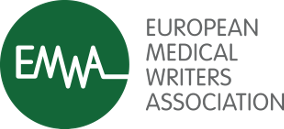Regulatory News - October
A 10-year analysis of how safety incidents involving medicines are managed in the EU.
This article provides an overview of the EU Incidence Management plan (EU-IMP) and reviews it first 10 years of operation. It outlines it scope, objectives, triggers, principles and components. Records were extracted from the European Pharmacovigilance Issues Tracking Tool and a separate tracking system for the period August 20, 2009 to August 19, 2019. During the 10 years of observation, 78 incidents were reviewed by the Incident Review Network and addressed through routine measures. Their number has varied throughout the years with a significant decrease after 2012. Incidents mainly covered safety (56%) and quality (34%) issues or a combination thereof (5%). The majority (70%) were notified by EU regulators and involved centrally and nationally authorized product in similar proportions. A referral was recommended as the assessment pathway for 47% of the issues while lines‐to‐take were the most frequent communication measure (the sole measure in 65% cases). Forty‐six per cent of the issues resulted in a variation, whereas 22% resulted in maintenance of the marketing authorization. In conclusion, the EU‐IMP is underpinned by a robust regulatory framework with defined processes and clear roles and responsibilities and offers a platform to coordinate actions and communication at EU level, rapidly pool expertise, minimize duplications, and address public health incidents.
Adverse event reporting clarified in FDA’s COVID-19 clinical trial guidance.
Investigators of new drugs must continue to send safety reports of serious and unexpected adverse events to their institutional review boards during the public health emergency of the novel coronavirus pandemic, according to an updated guidance from FDA.
MHRA releases guidance documents for the period after the post-Brexit transition period.
On September 1st, the UK’s Medicine and Healthcare products Regulatory Agency (MHRA) released more than two dozen guidance documents explaining how drugs, medical devices, clinical trials, and more will be regulated after the Brexit transition period expires on January 1st of 2021.
EMA’s web page on COVID-19: What’s new.
The latest updates on the COVID-19 pandemic from the European Medicines Agency (EMA), including all news and press releases, are available on this page.
EMA’s exceptional clinical transparency measures for COVID-19 related medicines and vaccines.
EMA will require publication of clinical data for COVID-19 related medicines and vaccines in order to maximise the transparency of its regulatory activities, as detailed in these exceptional transparency measures.
EMA’s PRAC recommends revoking marketing authorisation of ulipristal acetate for uterine fibroids.
A review by EMA’s safety committee (PRAC) has confirmed that 5-mg ulipristal acetate (Esmya and generic medicines) used for the treatment of symptoms of uterine fibroids can cause liver injury, including the need for liver transplantation. The PRAC has therefore recommended the revocation of the marketing authorisations of these medicines. The PRAC considered all the available evidence in its review, including reported cases of serious liver injury. Patient and healthcare professional representatives, including experts in gynaecology, were also consulted. Since it was not possible to identify which patients were most at risk or measures that could reduce the risk, the PRAC concluded that the risks of these medicines outweighed their benefits and that they should not be marketed in the EU. The use of 5-mg ulipristal acetate medicines for uterine fibroids had already been suspended as a precautionary measure while awaiting the outcome of this review. Ulipristal acetate is also authorised as a single-dose medicine for emergency contraception. This recommendation does not affect the single-dose ulipristal acetate emergency contraceptive (ellaOne and other trade names) and there is no concern about liver injury with these medicines. The PRAC recommendation will now be forwarded to EMA’s human medicines committee (CHMP), which will adopt the Agency’s opinion. For more details about this medicine, please click here.
Update of the EMA's post-authorisation procedural advice document.
The European Medicines Agency (EMA) provides scientific and regulatory guidance to pharmaceutical companies whose medicinal products have been authorised in Europe. This is known as the post-authorisation stage of the product lifecycle. The information in this section sets out the responsibilities of marketing authorisation holders in areas such as pharmacovigilance, applying to vary a marketing authorisation, submitting product data to EMA and reporting product defects or recalls. Please see here for the updated post-authorisation procedural advice document and here for details and links to relevant guidance and Q&As.
ANVISA updates regulations on pharmacovigilance.
The Brazilian National Health of Surveillance Agency (ANVISA) published on July 29, 2020 the Resolution RDC No. 406/2020 and Normative Instruction – IN No. 63/2020 in order to update the regulations on pharmacovigilance. RDC No. 406/2020 inaugurates a new regulatory framework and establishes the Good Pharmacovigilance Practices, revoking Resolution RDC No. 4/2009 – formerly responsible for establishing the industry standards. Meanwhile, IN No. 63/2020 deals with the Periodic Report of Benefit-Risk Assessment (RPBR) that must be submitted to ANVISA, and updates the former IN No. 14/2009.

